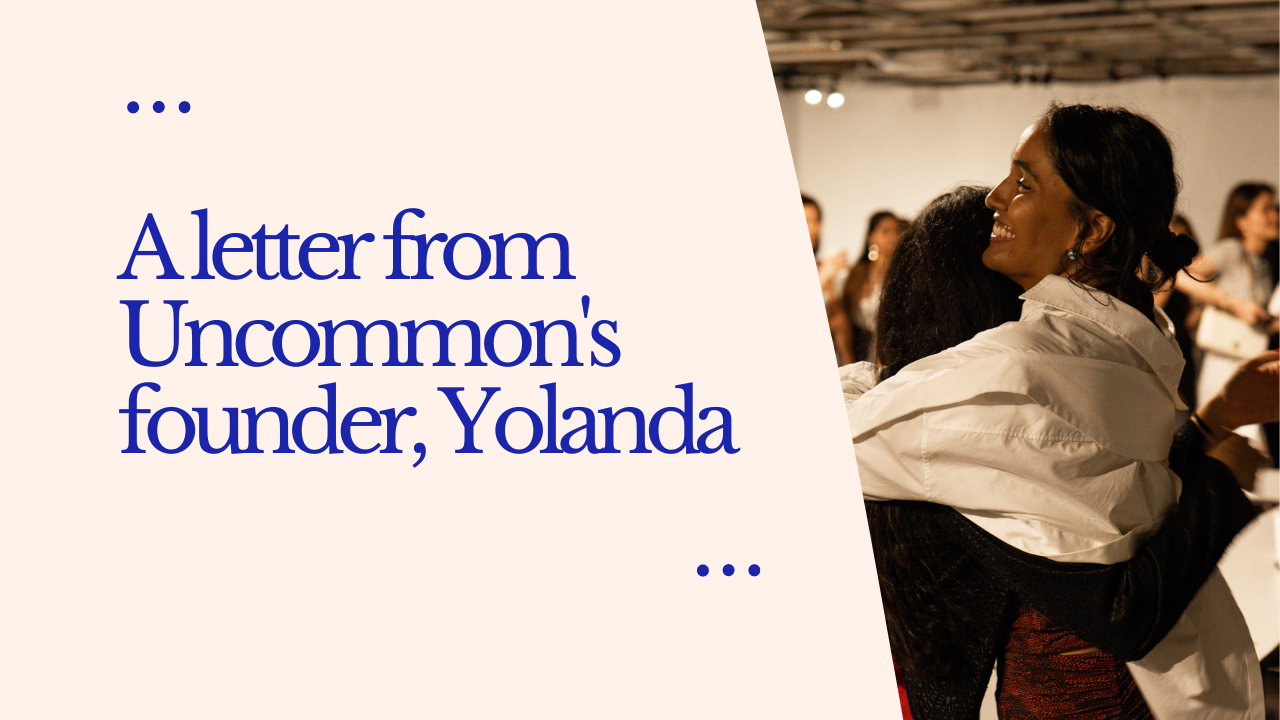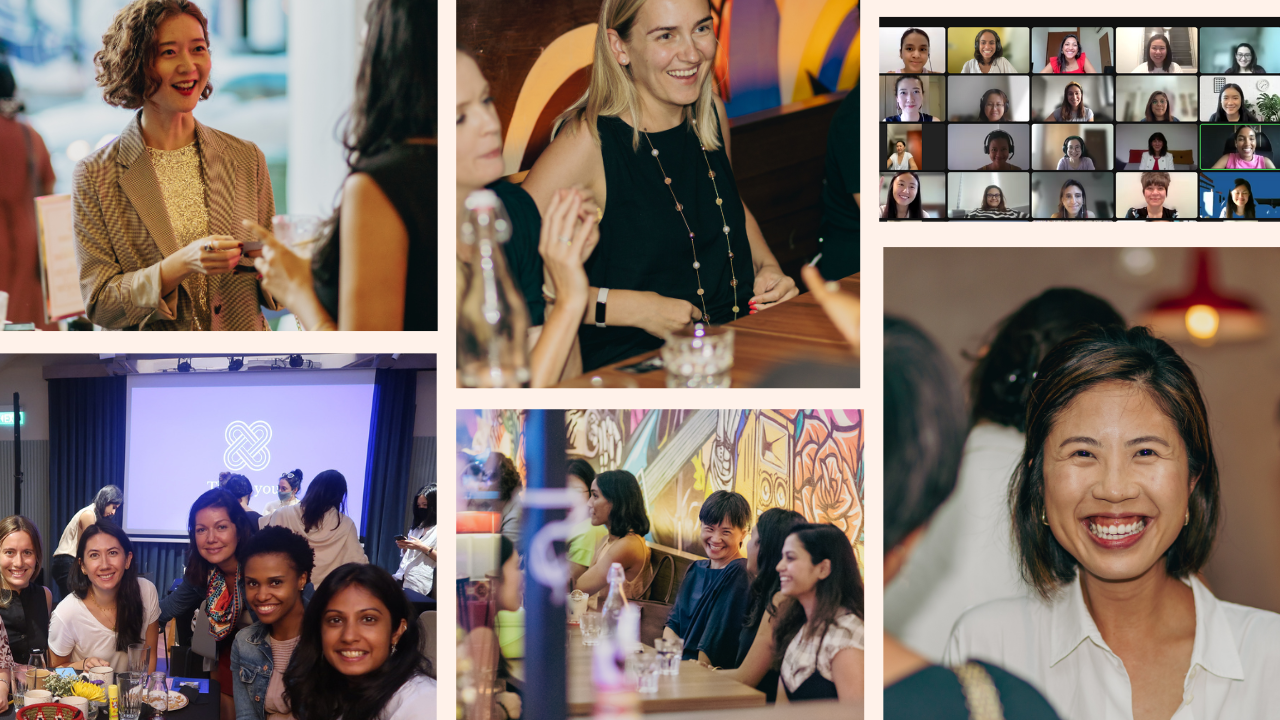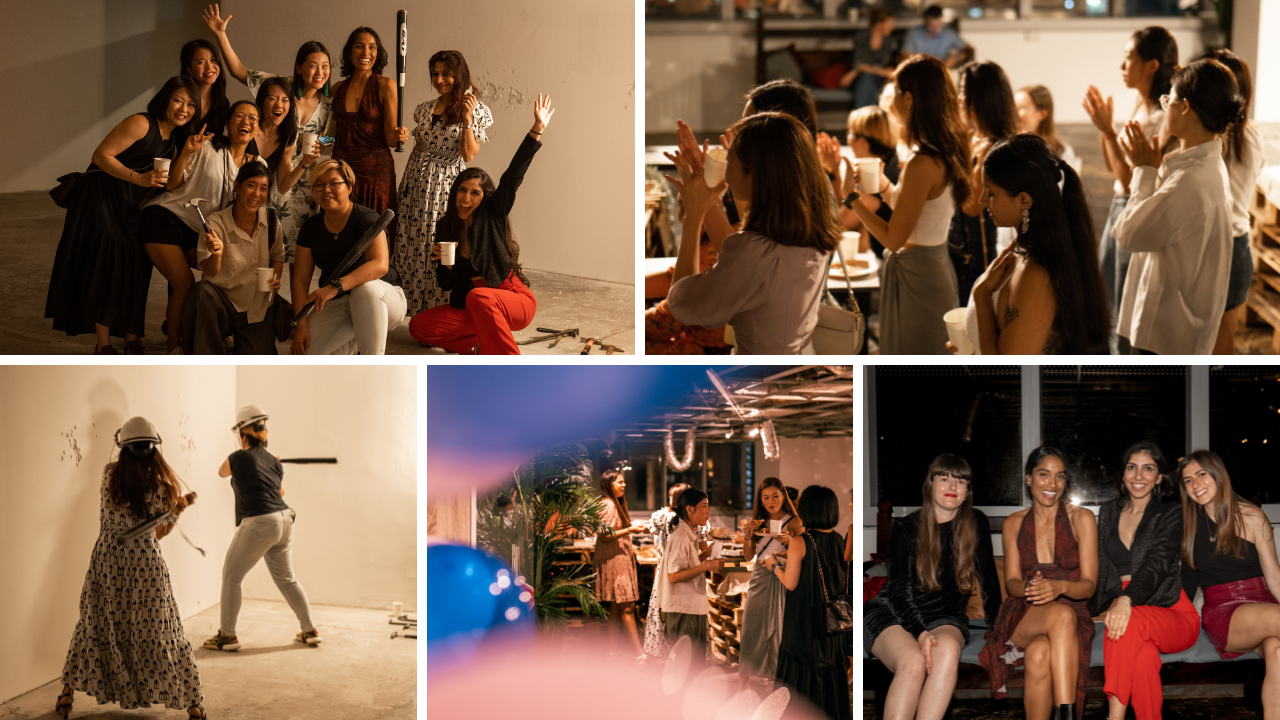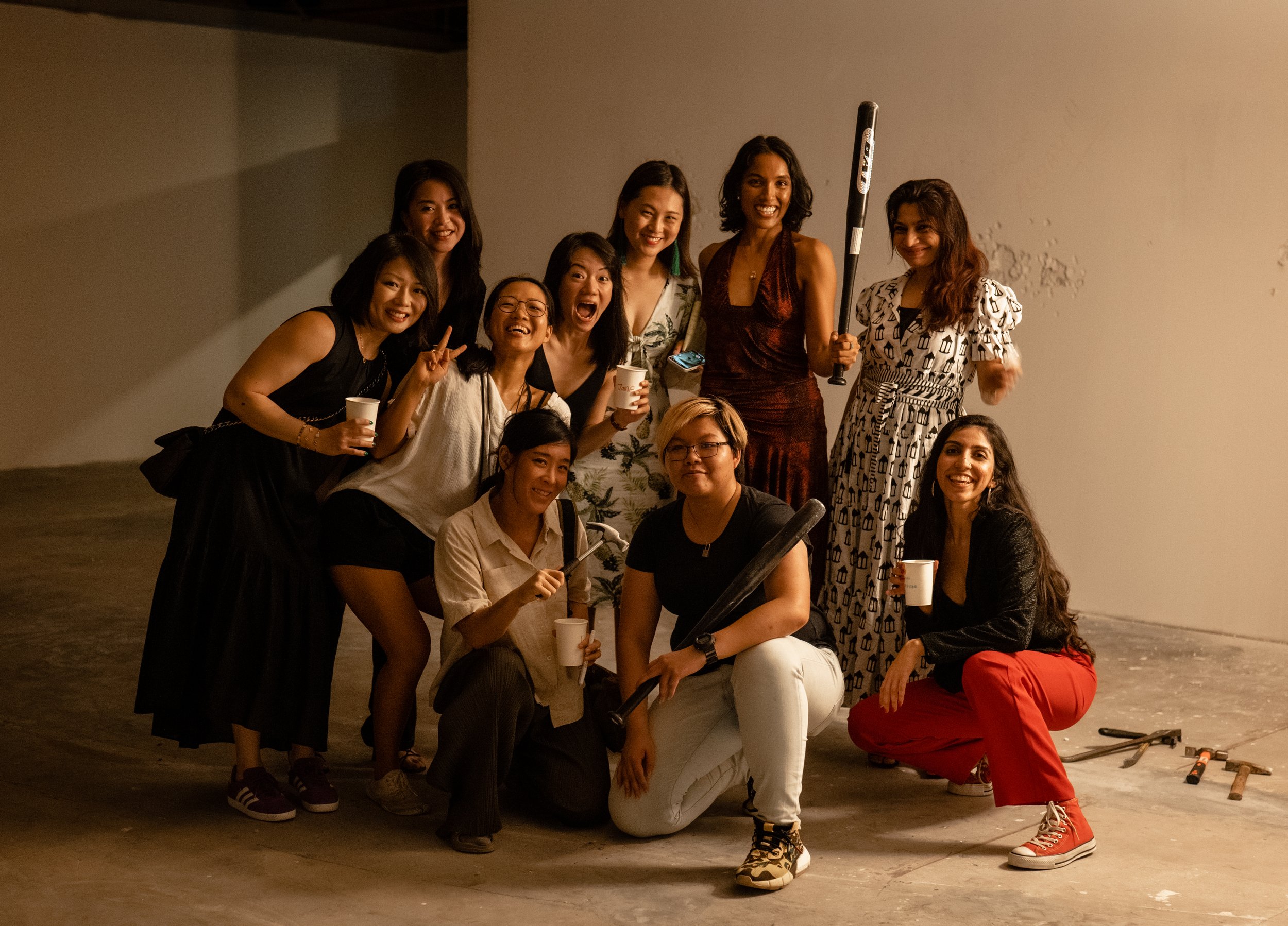A letter from Uncommon’s founder and CEO Yolanda Lee
Uncommon turns two this month! In this honest personal essay, Uncommon’s founder and CEO Yolanda discusses the challenges and wins of the last two years, how she defines a thriving community, and the need for workplaces to treat women as a feature, not a bug.
It’s been two years of Uncommon and hitting a milestone like this has had me reflecting a lot on why I started the business. The answer is simple: I wanted to create a space where women could truly connect beyond the masks of perfection that we are sometimes forced to wear. I recently found an old notebook where I had first sketched out my vision for Uncommon - our pillars of deeper connections, clarity of purpose and a matrix of opportunities. Seeing how similar Uncommon is today to that original vision (with hundreds of members and dozens of Core groups today)—is amazing. It moves me to think that something that was once a bare-bones idea on a piece of paper has grown into a community and a business that I’m incredibly proud of.
Wins, highs and teachable moments from a two-year run
If I had to describe the last two years in one word, I’d say resilience.
We launched Uncommon two years ago, in the middle of a global pandemic. As a founder, you often face these forks in the road, where you’re pulled in different directions by different people–whether that’s your investors, your team or your customers. One such defining moment was when I had to decide if we would keep our Core groups or not, in favour of a short-format programme (like a seven-week boot camp).
I remembered going back to that original sketch of what I wanted Uncommon to be: a space that embodied safety, a space that allowed women to grow and develop. I don’t believe in easy fixes or shortcuts to growth – you can’t force-feed learning and development. Growth takes time and we want Uncommon to be with women for the entire arc of their leadership journey - as they go through different seasons of their lives. And so, I had to push back against that decision, and we kept our Core groups. Today, Core remains something our members love. They often say how having the depth of an inner circle and personal advisory board really benefits them.
Another moment that stood out to me was learning the difference between being ‘exclusive’ and ‘curated’. Because Uncommon started as a dinner series, keeping a level of intimacy, safety, and curation within our community is essential to who we are and how we grow. Curation is not about dictating who belongs and who doesn’t, but about finding the right people and bringing them together in a way that’s meaningful and relevant to everyone. You don’t necessarily need a network of 10,000 people to feel supported, but you do need an inner circle, and that circle needs to be curated.
Curation is not about dictating who belongs and who doesn’t, but about finding the right people and bringing them together in a way that’s meaningful and relevant to everyone. You don’t necessarily need a network of 10,000 people to feel supported, but you do need an inner circle, and that circle needs to be curated.
On community and belonging
The idea of community and belonging has always fascinated me, probably because I never really fit squarely into a box. (Fun fact: I even did my Master's dissertation on financial inclusion of marginalised groups in Kenya!) Community is a word that gets thrown around a lot, but we often overlook the key ingredients that make up a community.
To me, a community is a place that allows you to belong to yourself and where you can show others who you truly are. And for a community to thrive, it needs to have a sense of safety, collective growth and generosity. It's not just about, “How can I get ahead?”, but also “How can I help others around me as well?” I believe the best communities are when everybody gives because that creates ground for a deeper connection.
In the last two years, we’ve evolved our community pillar at Uncommon. When I was originally building the business, I thought that our community would be led in a much more top-down way: that every session, panel, and interest group would have to come from us, in order to bring a community to life.
Instead, what I’ve actually learnt is that it’s also about giving the women in our community the platform to build their own interest groups, moderate panels, host a dinner or test out ideas that spark inspiration among themselves. One of our members, for instance, launched their own interest group last year focused on artificial intelligence and inclusion. That's when I began to shift towards a shared leadership model that I want members to run with. I think that encouraging our members to build their own micro-communities is what brings the sense of community to life and something that will drive the longevity of Uncommon as well.
To me, a community is a place that allows you to belong to yourself and where you can show others who you truly are. And for a community to thrive, it needs to have a sense of safety, collective growth and generosity. It's not just about, “How can I get ahead?”, but also “How can I help others around me as well?” I believe the best communities are when everybody gives because that creates ground for a deeper connection.
Smashing barriers, ceilings (and occasionally buildings) during our second anniversary bash
Looking ahead
As a founder, so much of my own growth and development has come from me taking the risk and refusing to give up on Uncommon. Through it all, I've learned the importance of having conviction in myself and my vision. I feel proud about building a space that is both designed for women to get ahead, and to do it in a radically new way—one that is built on compassion and vulnerability and requires working together, and that has been really amazing.
Looking forward, I see Uncommon evolving with members throughout all seasons of their careers. I often tell my team that we need to ‘move the needle’ with every member, but how we define that looks different for every individual. ‘Moving the needle’ could mean being able to carve out more time for themselves, so they can fill that up with activities that align with their purpose. It could also mean going on that acceleration track at work and feeling supported enough to pursue that. Or it could be finally starting that business they always wanted to. Whatever their goal, we want to help our members clarify the direction their compass is pointing in, and I see us matching them to the opportunities that are aligned with that.
With the incredible women of Uncommon
We're also expanding to new markets in the near future, but staying true to our vision of helping women become the most authentic leaders they can be. I want us to redefine a new leadership playbook for everyone; I want to boldly envision a world where women are treated as the feature, not the bug. I’m excited to continue thinking and solving for a more inclusive, connected world, one that is less divided and less siloed–and I know that Uncommon will be a major force in that transformation.
About Uncommon
Uncommon is a peer learning network for female leaders to connect, grow and thrive. We drive uncommon, candid conversations and provide resources that equip members to navigate various real-world situations and accelerate their life. We’ve opened applications for our next cohort: apply to join here.




